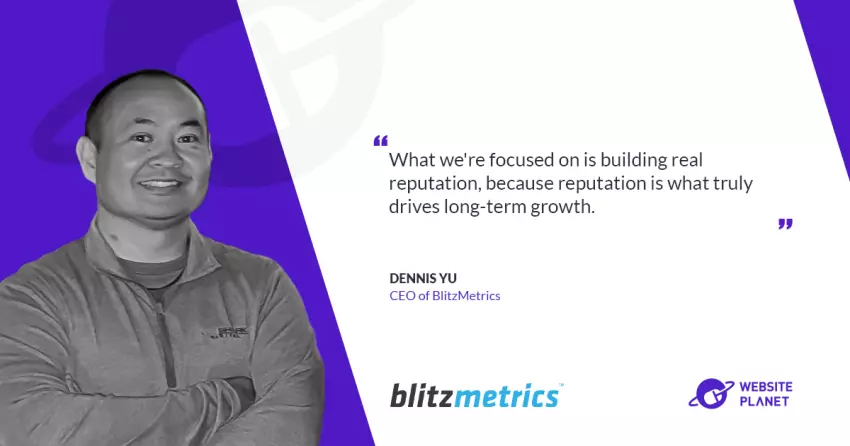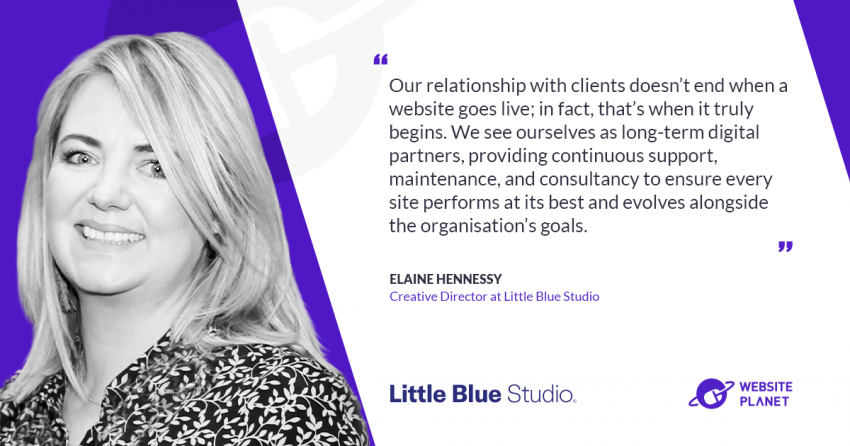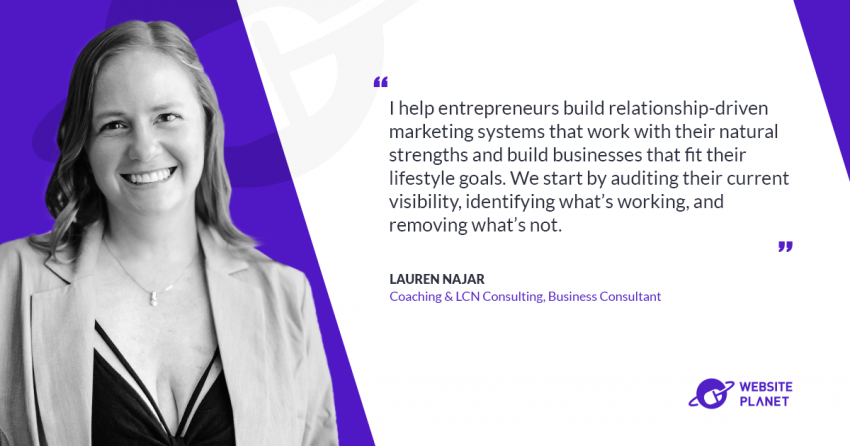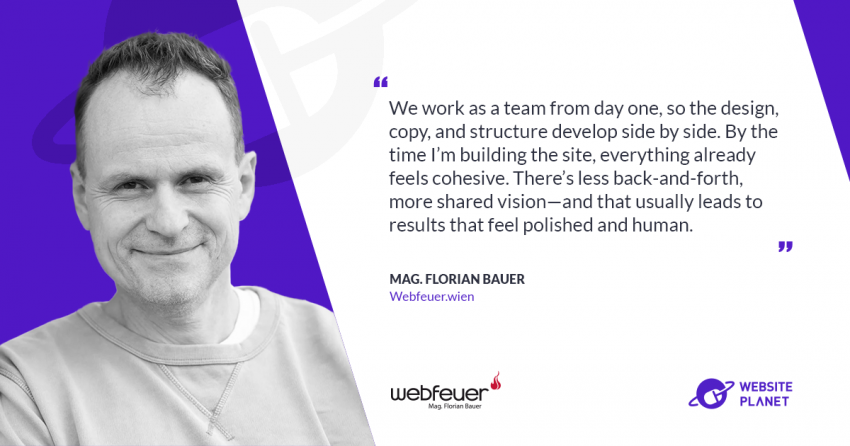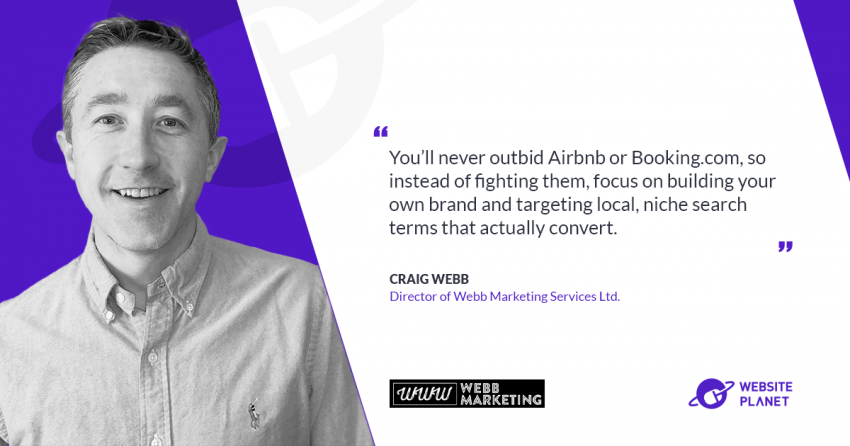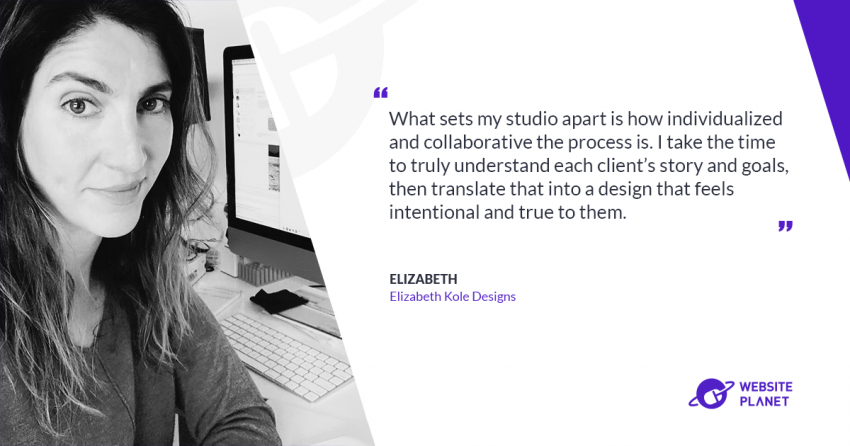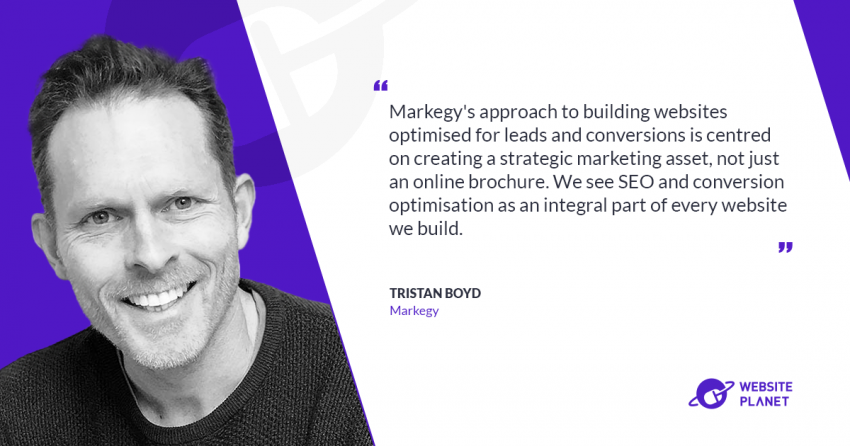Dennis Yu, CEO of BlitzMetrics and founder of YourContentFactory.com, has dedicated his career to bridging the gap between digital marketing theory and real-world execution. Today, he shares how his hands-on approach, mission to create a million jobs, and practical training systems are reshaping how marketers learn and grow. Learn more in his exclusive Website Planet interview below.
Can you please introduce yourself to our readers and share a few details about your professional journey?
I’m Dennis Yu, and I’m the founder of YourContentFactory.com. A long time ago, I was one of the first search engine engineers at Yahoo!, where I built their internal analytics system. That gave me unique access to massive amounts of data and helped me understand what Google was looking for and understand SEO from the perspective of protecting the integrity of search results—not from trying to game the system.
That background let me see what Google was actually looking for. So, I started helping some of my friends—like plumbers, landscapers, and dentists—create websites that perform better and generate more phone calls.
Over time, that turned into a group of agencies, and eventually into something even bigger: a network of young adults running their own specialized agencies. From there, we created what we now call the Million Jobs Mission. The idea is to create one million jobs for young adults in the U.S. or for virtual assistants in places like the Philippines, Pakistan, etc. These people can now get certified through our training and then work with real clients to build their skills and income.
What is Content Factory Academy and what courses do you offer through it?
The Content Factory Academy includes over 150 courses we’ve built—not to sell, but because it was necessary to train people. We realized that things we take for granted—like setting up a WordPress site, installing plugins, editing videos, running Facebook ads, writing headlines, collecting client video testimonials—aren’t obvious to someone just starting out.
At first, I’d personally demonstrate how to do these tasks. But that quickly became unscalable. If you’re running an agency or consulting, you’re getting paid to execute, not to train people one-on-one. I’ve lost a lot of money training people this way—it’s like a university paying students to attend and study. The more help they need, the more it costs you. That’s not a sustainable model, especially in my field, where instead of clients who are willing to spend money for my time and assistance, a person from another country expects me to spend time 1 on 1 to tutor them, and then pay them for it.
We feel that the educational system in digital marketing is broken, and we aim to change it. That’s why we created an apprenticeship system. People come in and work on real projects alongside folks with more experience. And instead of live one-on-one instruction every time, we recorded thousands of Zoom calls where we walk through exactly how we do things—step-by-step. Those recordings became the foundation of our courses.
We’ve worked with platforms like Google, TikTok, GoDaddy, HubSpot, and Fiverr, as well as several hundred universities. We’ve built co-branded certifications with many of them. And now, as part of our broader mission, we’ve made all of these courses completely free as our main goal isn’t to earn money, but rather to help people get jobs and be proficient at them.
If someone wants to learn how to help a local plumber rank on Google Maps, we’ve got that process documented. For example, my friend Sal runs Plumbing Pros in Eastern Pennsylvania. We show how we collect video content from him, how we build local landing pages, how we run ads—everything.
You seem to put a strong focus on practical, hands-on experience over traditional marketing education. Can you talk more about why that’s important to you?
One of the biggest problems I see is people teaching marketing who don’t actually do marketing. They’re selling info products, courses, and coaching programs—but they’ve never actually ranked a website, run a real campaign, or worked with real clients.
These are people who are just marketers. They’re not marketing practitioners. They tell others how to get clients, but they’ve never done it themselves. And that’s dangerous. For example, I recently had a call with someone who claimed he could rank local businesses by generating fake reviews and spinning up fake ad accounts. That kind of tactic might work temporarily, but it’s not sustainable—and it’s definitely not legitimate.
It’s like the obese weight-loss coach: Sure, their advice might be good, but if they’re not practicing what they preach, it’s hard to take them seriously.
What we’re focused on is building real reputation, because reputation is what truly drives long-term growth. Our clients succeed because they follow proven SOPs that are transparent and repeatable. It becomes easy to audit the work, easy to measure the value—how many phone calls are coming in, how much revenue is being generated. That’s what real marketing should look like.
We’re transparent about our work. Every time we help a client, we document the process. My friend Dr. Hugh Flax, for instance, is a dentist in Atlanta. He burned over $100,000 on a marketing agency because he trusted the guy, but got no returns back. We stepped in to rebuild everything—his website, his ad accounts, we filmed new videos—and we documented the entire process.
Same with my friend Anthony Hilb in Bloomington, Indiana. He started out mowing lawns with a minivan. Now he has a team of around 70 people and does $6–7 million a year. You can Google “Anthony Hilb and Dennis Yu” and see exactly what we did. We’ve filmed the videos, captured how he trains his team, and documented his ad setup—all of it.
So if a young adult in, say, South Dakota gets a landscaping client, they don’t have to guess what to do. They can follow the exact steps we used with Anthony. It’s not about some secret “hack”—it’s about real-world mentorship and replicable systems.
We’re living in a time where ChatGPT and AI tools make information free. Google made information free years ago. So the real value is in implementation. Businesses don’t care about secrets or fluff—they want someone who can get the work done and deliver results.
Do you have any upcoming projects we could be looking forward to?
We have a few upcoming projects, like the Quick Audit tool we’ve developed. It’s a set of tools that can audit local businesses, particularly those in Google’s LSA (Local Service Ads) category. We can assess exactly what’s going on with their business, measuring it according to Google’s standards. For example, we can analyze page speed insights, reviews, and compare a plumber in Pennsylvania to their competitors. We can evaluate how well their content is performing, what keywords they’re ranking for on Google, and more. It’s like an MRI for their online presence—something no one can really argue with.
Our friends who are doctors, lawyers, or other professionals really appreciate this approach. For example, my friend Glenn Vo, a well-known dentist in Dallas, uses the Quick Audit. We’ve also used it for Red Rhino Roofing in Omaha, Nebraska, a large roofing company. The beauty of this tool is that it combines automation with the expertise of smart people who know how to use the tools effectively. It’s not full automation, and I don’t think it ever will be. You need both smart tools and smart people working together.
What I love about this approach is that it can drain the swamp of all the nonsense in the industry. There’s so much being sold by people who don’t actually have expertise—they’re just trying to take advantage of small business owners who may not know any better. Real measurement is key. We want to reward the people who know how to implement and drive results, not just those who are better at selling.
I think the more people believe in demonstrating openly what they teach and being true practitioners, the better. If we claim to help businesses rank on Google, you should be able to Google my name and see a full Google Knowledge Panel showing up with all the details. If I claim to build websites that rank, then come check my websites and see if they actually rank.
If we’re teaching people to make one-minute videos to help them rank their local service pages—like a chiropractor in San Diego, for example—then I should be able to show that I’ve done it myself.
I hope that people find value in what we do. I encourage your readers to Google me, check out the Knowledge Panel, and see how we practice what we preach. There are thousands of videos out there showing our process. Try it for yourself—type in your name and see if you have a Knowledge Panel. See how many citations you have. If you have knowledge you want to share, just like I do on this podcast, I’d encourage you to share it as well.
To learn more about Dennis’s work and BlitzMetrics, you can visit blitzmetrics.com and dennisyu.com,
his LinkedIn and Facebook pages, as well as the BlitzMetrics Facebook and X pages.
